What Boris Johnson has promised to do about Brexit
He may have been elusive on some policy areas but when it comes to Brexit, Boris Johnson has made a number of clear commitments.
While previous Conservative leadership campaigns covered a diverse range of issues, Britain’s departure from the EU dominated the latest tussle for the top job in the party.
During his time on the campaign trail Mr Johnson made a series of promises about Brexit.
Here are some of his key pledges:
To leave the EU by October 31 'do or die'
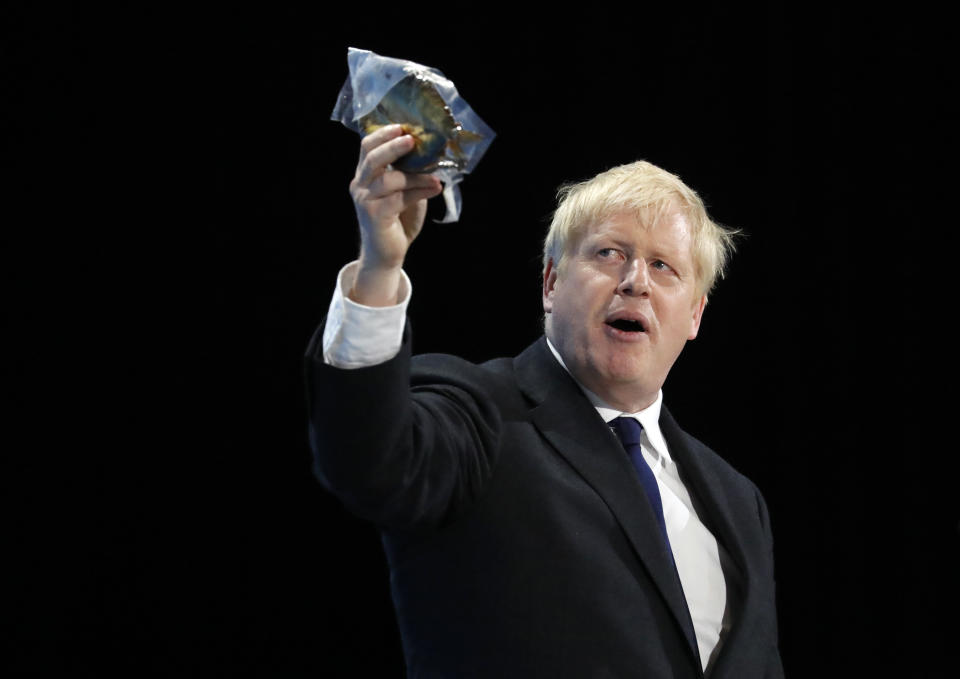
Mr Johnson has said he will ensure Brexit happens “come what may” by Halloween and said he would put his own plans "into action" on day one as Theresa May’s successor.
In an interview with TalkRadio, he said: "So we are getting ready to come out on 31 October, come what may," and added: "Do or die. Come what may."
BORIS JOHNSON IN NUMBER 10: MORE FROM YAHOO UK
Johnson is a 'mini-Trump' who will be a disaster, warn Euro newspapers
Boris Johnson: ‘can-do spirit’ can solve problem of Irish border
Michael Gove: Why I’ve changed my mind about Boris Johnson
Boris Johnson says ‘three years under Theresa May will seem like a bad dream’ once he’s Prime Minister
Boris Johnson profile: Eccentric, unmissable... and now the man in the top job
To be ready to leave without a deal
A key message in Boris Johnson's leadership campaign has been a commitment to keeping a no-deal Brexit on the table.
He said at the beginning of the race he is 'not aiming for a no-deal outcome' but maintained it is 'vital' for negotiations not to rule it out.
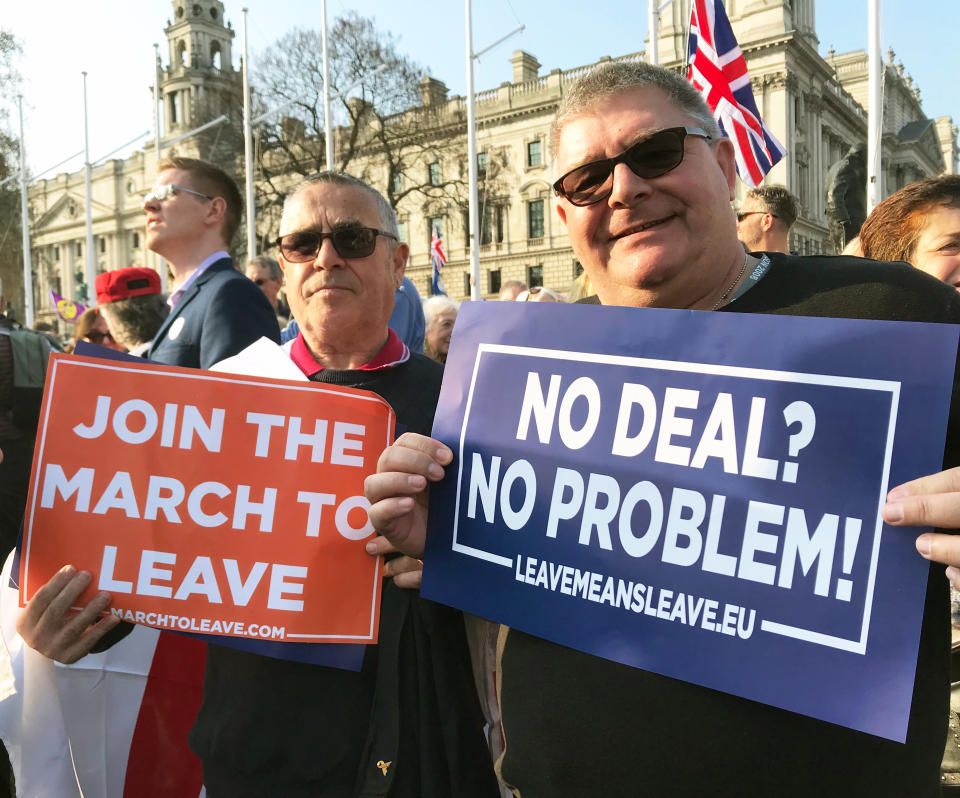
MPs have previously voiced their opposition to no deal, which economists warn could tip Britain into recession, and Mr Johnson is likely to face a groundswell of resistance if he tries to pursue it as a policy.
However no deal is the legal default, and the UK will leave without an agreement on 31 October unless an alternative is found or another extension is approved.
To throw out the Northern Ireland backstop
In interviews during the leadership election process, both Mr Johnson and his rival Jeremy Hunt declared the Northern Ireland backstop “dead”, promising to throw it out of any deal negotiated with the EU.
Brexiteers argue the backstop - the mechanism to guarantee no hard border between Ireland and Northern Ireland - ties the UK to Brussels rules indefinitely.
Asked in a Sun and Talk Radio debate on whether he would seek a time limit to the backstop, Boris said: “The answer is no. The problem is really fundamental. It needs to come out.”
He said his policy would be “no to time limits or unilateral escape hatches or these kind of elaborate devices, glosses, codicils and so on which you could apply to the backstop.”
He added: “I think the problem is very fundamental. It has been devised by this country as an instrument of our own incarceration in the single market and customs union. It needs to come out.”
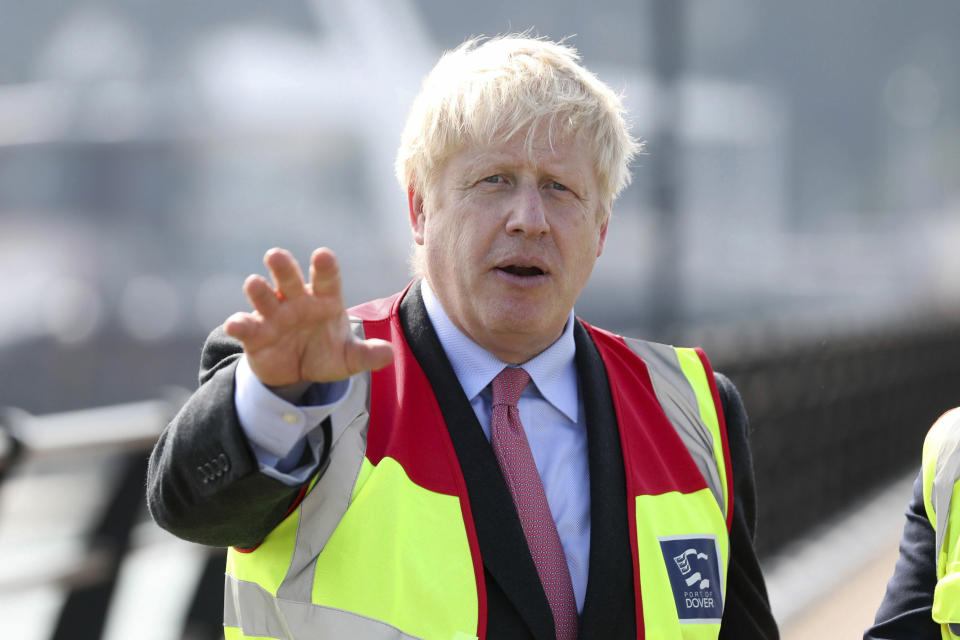
To hold back the £39bn divorce bill to ‘get what we want’
One tactic Boris Johnson pledged to use to secure a new deal is to hold onto the £39bn EU divorce payout promised by Theresa May and her team of negotiators.
Speaking at a leadership hustings in Exeter, Mr Johnson said holding back the money could ensure the UK gets ‘what we want’.
He said: "Let’s take the money the £39bn and put in a state of creative ambiguity suspended over the negotiations until we get what we want."
He had also previously said: "I always thought it was extraordinary that we should agree to write the entire cheque before having a final deal.
"In getting a good deal, money is a great solvent and a great lubricant."
BORIS JOHNSON IN NUMBER 10: MORE FROM YAHOO UK
Johnson is a 'mini-Trump' who will be a disaster, warn Euro newspapers
Boris Johnson: ‘can-do spirit’ can solve problem of Irish border
Michael Gove: Why I’ve changed my mind about Boris Johnson
Boris Johnson says ‘three years under Theresa May will seem like a bad dream’ once he’s Prime Minister
Boris Johnson profile: Eccentric, unmissable... and now the man in the top job
To prorogue Parliament if necessary
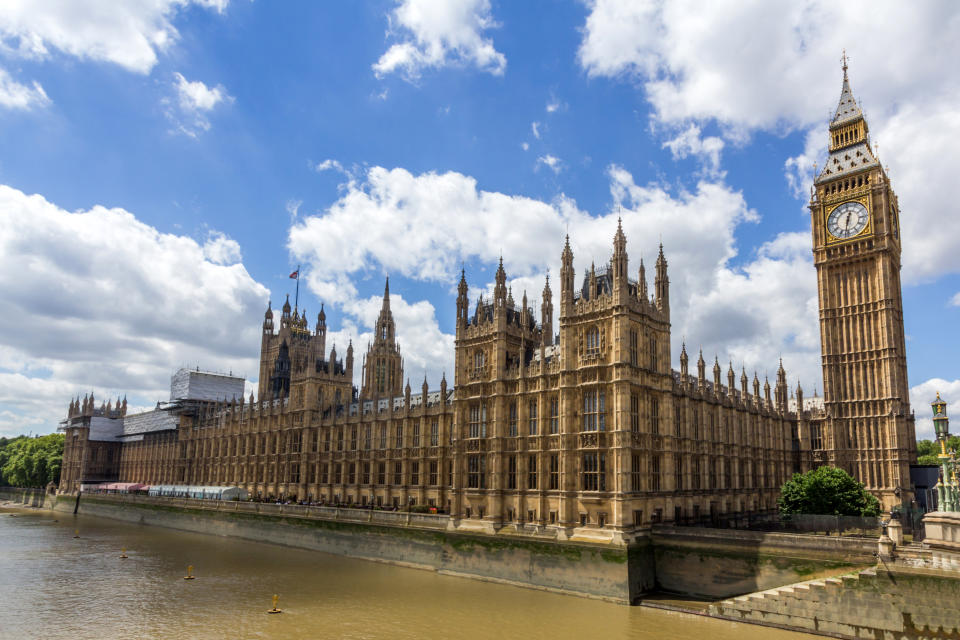
Boris Johnson has repeatedly refused to rule out proroguing - suspending -Parliament to ensure the UK leaves the EU.
But it looked increasingly likely that he would take the step, with reports claiming that he plans to suspend Parliament in the two weeks running up to the October 31 deadline to guarantee Brexit happens on that date.
Speculation suggested that Johnson planned to hold a Queen's Speech setting out his plans - something that usually sees Parliament closed down for the two weeks prior to it - at the start of November.
That would mean that MPs would be unable to vote against a no-deal Brexit.
But wheels quickly turned in a pre-emptive strike to stop such a measure, with MPs passing an amendment seeking to block any attempt by a future government to prorogue parliament to ensure a no-deal Brexit.
To use Gatt 24 as a way of getting a ‘transition’ without a deal
Mr Johnson has suggested that GATT 24 - a clause in WTO rules - could allow the UK to continue to trade with the EU despite a no-deal scenario.
The former Mayor of London has quoted Paragraph 5b - which allows a temporary free trade area to be made between two countries providing it doesn’t unfairly damage trade in other countries outside the deal - as a way to “agree to a standstill”.
However, the rule only applies to goods and not services, and would also depend on the UK’s ability to get the EU to agree to move to the free trade agreement.
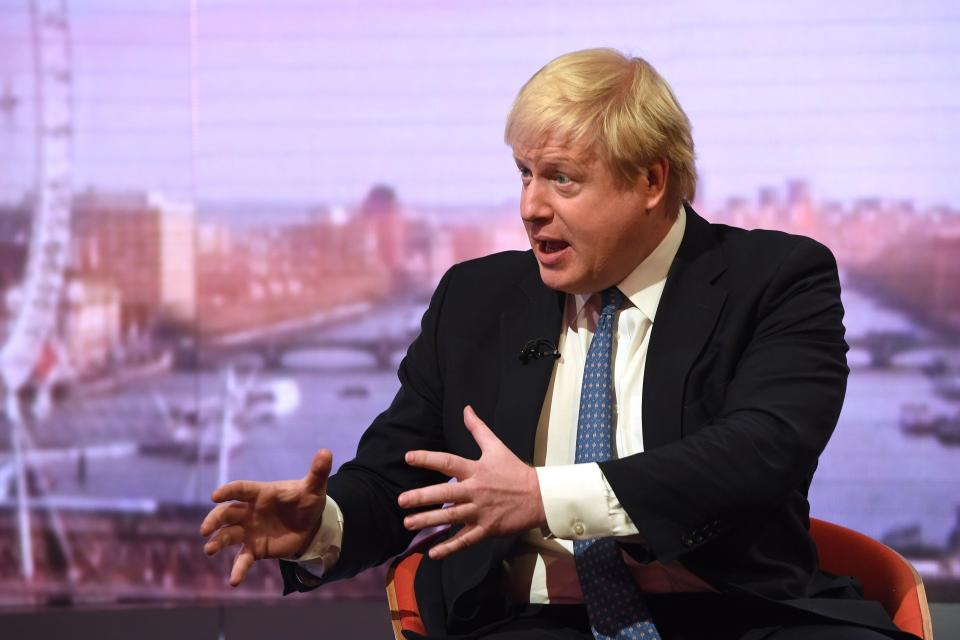
In an interview with the BBC’s Andrew Neil, he said: “It might be possible, and I accept this has to be done by mutual agreement, but it might be possible for instance as we come out to agree under GATT 24 paragraph 5b that both sides agree to a standstill, a protraction of their existing zero tariff, zero quota arrangements until such time as we do a free trade deal.
“That would be one way forward and I think that would be very attractive.”
But he was pulled up on his understanding of GATT 24 when he struggled to ask how he would deal with paragraph 5c.
The former Foreign Secretary admitted he didn’t know what was in that paragraph but said: “Why this defeatism? Why this negativity? Why can’t we rely on the goodwill and the common sense of these parties to get this done?”

 Yahoo News
Yahoo News 

